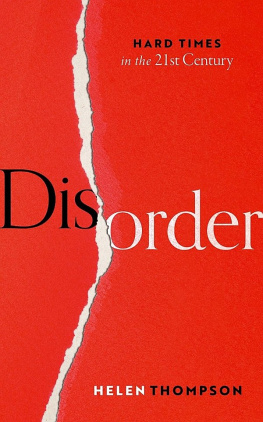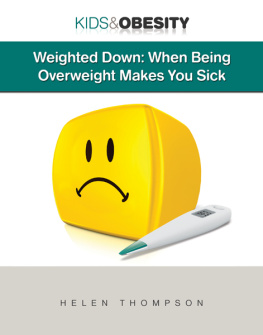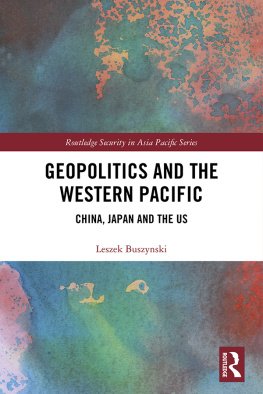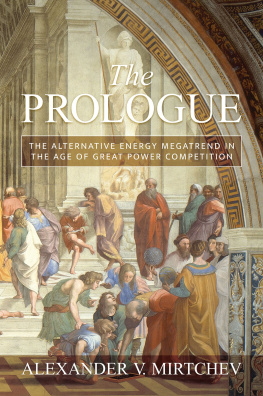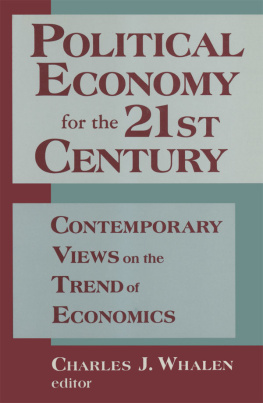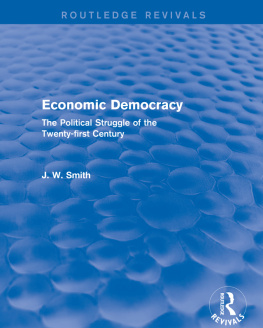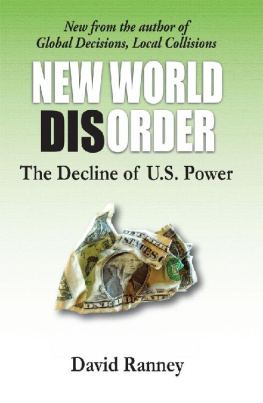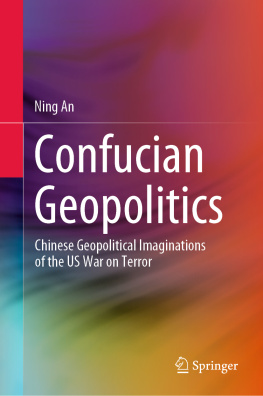Disorder

Great Clarendon Street, Oxford, ox 2 6 dp , United Kingdom
Oxford University Press is a department of the University of Oxford. It furthers the Universitys objective of excellence in research, scholarship, and education by publishing worldwide. Oxford is a registered trade mark of Oxford University Press in the UK and in certain other countries
Helen Thompson 2022
The moral rights of the author have been asserted
First Edition published in 2022
Impression: 1
All rights reserved. No part of this publication may be reproduced, stored in a retrieval system, or transmitted, in any form or by any means, without the prior permission in writing of Oxford University Press, or as expressly permitted by law, by licence or under terms agreed with the appropriate reprographics rights organization. Enquiries concerning reproduction outside the scope of the above should be sent to the Rights Department, Oxford University Press, at the address above
You must not circulate this work in any other form and you must impose this same condition on any acquirer
Published in the United States of America by Oxford University Press
198 Madison Avenue, New York, NY 10016, United States of America
British Library Cataloguing in Publication Data
Data available
Library of Congress Control Number: 2021951494
ISBN 9780198864981
ebook ISBN 9780192634214
Printed and bound in Great Britain by Clays Ltd, Elcograf S.p.A.
Links to third party websites are provided by Oxford in good faith and for information only. Oxford disclaims any responsibility for the materials contained in any third party website referenced in this work.
For my niece Florence,
and to the memory of my colleague and
friend Aaron Rapport
Time went on in Coketown like its own machinery: so much material wrought up, so much fuel consumed, so many powers worn out, so much money made. But less inexorable than iron, steel, and brass, it brought its varying seasons even into that wilderness of smoke and brick.
Charles Dickens, Hard Times for These Times
It is likely enough that, rooted in the woods of France and Norway, there were already growing trees, when that sufferer was put to death, already marked by the Woodman, Fate, to come down and be sawn into boards, to make a certain moveable framework with a sack and knife in it, terrible in history. It is likely enough that in the rough outhouses of some tillers of the heavy lands adjacent to Paris, there were sheltered from the weather that very day, rude carts, bespattered with rustic mire, snuffed about by pigs, and roosted in by poultry, which the Farmer, Death, had already set apart to be his tumbrils of the Revolution. But that Woodman and that Farmer, though they work unceasingly, work silently, and no one heard them as they went about with muffled tread; the rather, forasmuch as to entertain any suspicion that they were awake, was to be atheistical and traitorous.
Charles Dickens, A Tale of Two Cities
We see, the Lawes of other Common-weals to alter with occasions, and even those that pretended their originall from some Divinity, to have vanished without trace or memory.
Thomas Browne, Religio Medici
Contents
In retrospect, this book had its genesis in the summer and autumn of 2016. In part, this came from a sense of what I thought I understood. Over that summer I worked to finish a short book on why oil has proved so disruptive to Western economies since the turn of the century and wrote a piece for the magazine Juncture, arguing that whichever way the referendum result had gone, Brexit was in the long term most likely unavoidable. After I submitted my book manuscript, I began an academic article interrogating the relationship between what I judged Brexits eventual inevitability with the contingencies of David Camerons premiership. As I pursued that argument, the contingency seemed weaker than I first thought and the structural forces propelling Britain out stronger. In thinking my question through, I realized that the long-standing monetary divergence between Britain and the Eurozone became particularly consequential from 2011 because of the very different responses of the Bank of England and ECB to high oil prices. In a rather different way, an energy story also seemed part of the 2016 presidential election, which was the first election for nearly fifty years that had taken place with the United States as a top oil producer. To my analytical mind, Trumps election victory seemed an explicable political phenomenon. If that was not a particularly comfortable place to occupy, it gave me some confidence that I could explain to myself anyway why 2016 had taken the turns it had.
Just as importantly, the impulse to write this book came from a sense of what I did not understand in the turbulence of that year but instinctively judged to be geopolitically significant, in particular the fallout from the attempted coup in Turkey. During my research on oil, I had begun to think geopolitically. But there was much I still needed to learn.
My responsibilities in Cambridge meant it was several years before I pulled my thoughts together and sketched with broad brushes a version of the arguments in this book. In September 2019, I began a years academic leave and started writing. I was two-thirds of the way through a draft when the pandemic hit. Initially, I wondered if there was still a book: if I was trying to explain the present political moment, what happened if that moment changed out of all recognition? But, relatively quickly, I concluded that the fallout of the pandemic was not replacing the story I was telling with a different one but in crucial respects deepening it. The additional time I have taken to complete the book in order to include 2020 in my analysis gave me the chance to reflect again on the last decade of the geopolitical story, in particular its relationship to green energy.
In writing a book that looks to la longue dure to explain ongoing economic and political change, the vantage point can never be quite right. The book risks trying to explain more than can be seen clearly at this moment in time. There are a lot of moving parts that I am well aware in their interaction may unfold in the future in different ways than my historically driven narrative would suggest. I am generally wary of predictions, and those few I have made in the conclusion I have done with some hesitancy. Getting to grips with the appropriate time frames for political analysis is an inherently troublesome task. The fact that how to think about risks in relation to time has become a central problem of modern politics only compounds this difficulty.
My title is a homage to Dickens and his meditation on industrial civilization pitted against the innumerable horse-power of time in his most schematic novel, Hard Times for These Times. It is also a small reminder to myself of the need for epistemological humility: what I was unable to see when I read the novel for the first time as a 16-year-old stupidly deprived me of more than a decade of missed opportunities to enjoy Dickens insight and pleasures.
My primary debts are to Sarah Chalfant, Emma Smith, and Luciana OFlaherty. My agent Sarah and her colleague, at the Wylie Agency, Emma guided me with consummate professionalism through every stage of this book, including the last discussions of my title. Their phenomenal support through the stresses thrown up by events during the first months of the pandemic allowed me to work much more productively that spring and summer than I would otherwise have done. Luciana, my editor at Oxford University Press, has been a huge assistance in helping me improve the text. I try not to dwell on what it might have done to her sanity in the process.

